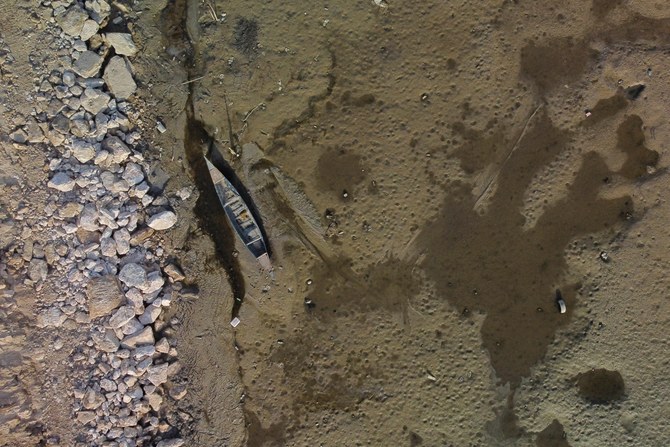
A study conducted by Izmir Bakircay University in Turkey has modeled that global warming reaching the upper temperature could cause an average 18 percent rise in public debt by the end of the century, compared to 5.7 percent if we reach the lower temperature rise.
For poorer countries, this would have a huge impact. We only have to look to the host country of COP27, Egypt, and to the city of Alexandria, on its Mediterranean coast. Alexandria is at risk from severe flooding from increased storms and rising sea levels. It lies in Egypt’s Nile Delta, which is already low-lying land, but it is also sinking, while the Mediterranean’s level is rising due to global warming. It has been predicted that Alexandria will be completely underwater by 2050 if global temperatures continue to rise.
Dams and breakwaters sufficient to protect the city will cost over $82 million, despite Egypt only contributing 0.6 percent of the world’s carbon dioxide emissions. An OECD report, titled “Ranking of the World’s Cities Most Exposed to Coastal Flooding Today and in the Future,” listed Alexandria as the 11th city worldwide in terms of population expected to be exposed to coastal flooding in the 2070s. It was ranked 20th in terms of assets exposed to coastal flooding. This is an example of how just one city in the Middle East and North Africa may be affected.
There have also been record high temperatures experienced in Oman and Kuwait, with a 1.5 degrees Celsius increase already seen across the region, compared to a global increase of 0.7 C. This has led to droughts, people dying from heat exhaustion, rising costs due to higher air conditioning bills, and maintenance on melting roads. Oman also already suffers from cyclones and flash floods, which will worsen with rising sea levels.
Infrastructure needs to be in place to mitigate all of the risks, but infrastructure is expensive. It is predicted that $450 billion is required by 2030 to effectively prepare adaptations for climate change, whereas only $6 billion is currently in place, with most of this being spent on mitigation, such as renewable energy, rather than adaptation, while the current application process is far too complex.
Of course, reducing carbon dioxide emissions is still hugely important to reduce or slow the changes to the environment, but there must also be a focus on how to prevent damage due to the climate change that is already occurring. This could be a huge opportunity for the Middle East to develop green energy, which is a good way to mitigate carbon dioxide emissions and also a good way to secure energy and fuel for the future. The profits can be used to continue to develop better infrastructure and new cities that can withstand the potential impacts of climate change.
Adaptation was one of the big themes at COP27, with day 12 focusing on “Adaptation and Agriculture,” including how nations can implement adaptations against rising temperatures and sea levels that maintain crop yields and food and fresh water supplies.
Infrastructure needs to be in place to mitigate all of the risks, but infrastructure is expensive.
Bashayer Al-Majed
This year, for the first time, a discussion was held on whether richer nations should compensate developing nations or help fund their efforts to manage and prepare for the damage and losses caused by climate change. This climate change conference was really important in allowing global leaders to come together and take the time to really discuss these important issues about how to make our countries safer and more habitable in the coming year.
With regards to combating damage resulting from climate change, the UN on Monday released a draft text on a potential loss and damage agreement. This has been a very long time coming, with many richer nations reluctant to agree to fund poorer nations’ climate change-induced loss and damage. However, for those developing countries, such agreements are essential for their survival.
So, it seems that parties have decided to agree that loss and damage will be funded, but the details still need to be decided on. The draft text states that members are to implement a work program, “with a view to recommending a draft decision on funding arrangements for loss and damage in 2024,” reporting back at the following COPs.
The parties need to draw up and review a gap analysis, which is hugely important to ensure all parties get a chance to be heard and that issues are seen from all contexts and perspectives, dependent on their geography, weather and finances, with a detailed examination of both long-term and slow-term issues, such as the effects of rising sea level versus those of flash floods.
While the details of how this will actually be implemented have not yet been decided and while delays really need to be limited because temperature rises, particularly in the Middle East, are happening faster than predicted, there is an agreement that will be explored further. The concept is that agreeing countries should pay into a fund that will bail out nations that experience loss and damage due to the effects of climate change. This money can be used to rebuild in a more adaptive way to prevent any recurrence of the damage.
For countries in the MENA region, which will see huge changes, such as some of the largest temperature rises and largest populations impacted by flooding, and where the appropriate funding has not yet come through, this is a really important step. These nations need expert assistance in terms of adaptations, but also the funds to do so.
This is a vital time for the Middle East. If it can gain access to the funds required for adaptation and mitigation, it can ride out the extreme changes predicted. But the world needs to make decisions quicker and commit more; lives and economies depend on it.
• Dr. Bashayer Al-Majed is a professor of law at Kuwait University and visiting fellow at Oxford.
Twitter: @BashayerAlMajed












